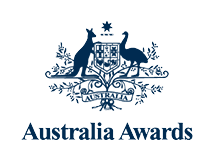Happy Fish Kids: A Trail-blazing After School Care Program
Over the past decade, there have been significant developments in the Philippines in expanding access to primary education especially in rural areas. New laws have been introduced including the Barangay (Village) Day Care Center Law which calls for the establishment of day care centers in every village and the Early Child Care and Development (ECCD) Act which mandates every village to have day care centers and early learning institutions for children.
Attention, however, has been largely focused to pre-school interventions. Even in the private sector, privately-run pre-school institutions have mushroomed in all major urban centers.
Despite these developments, a UNICEF report cites a decline in access of young children to pre-school education – if at all – and an even more alarming drop-out rate when children make it to primary or high school education. The trend is even more worrisome in rural communities than in urbanized cities.A trailblazing approach by an Australia Awards scholar at reversing these trends may just do the trick: after school care.
Roy Ponce, an Assistant Professor of Mathematics at the Davao Oriental State College of Science and Technology (DOSCST), conceived and put into action the establishment of an after school care center in Taganilao, a remote fishing village in Tamisan, Mati, Davao Oriental. This center, which he dubbed Happy Fish Kids, was his re-entry action plan (REAP) upon his return to the country after two years of post-graduate studies in Australia.
The re-entry action plan (REAP) is a unique feature of Australian Government scholarships in the Philippines – it ensures that the returning scholars will be able to apply what they learned in Australia and contribute to development in the Philippines; it is a way of giving back to Filipino communities.
For his formal re-entry action plan, Roy established a Resource Assessment and Evaluation Center at DOSCST after finishing his Masters degree in Education Assessment and Evaluation at the University of Melbourne in 2006. But Happy Fish Kids is a personal REAP.
“Happy Fish Kids is my modest way of paying forward the opportunity for higher education, when I was awarded the Australia Awards-Development Awards Scholarship,” Roy said.
“I was inspired when I witnessed the afterschool care center system of the University of Melbourne which was just next to my college building then. And I figured, if children in advanced countries like Australia can provide such service to school children, there must be a way to build centers that can benefit our own school children, especially those in poorer communities in the Philippines,” Roy explained.
Roy recalls the story of a student who hails from Taganilao who claims to be the lone college graduate from his village in the last 20 years.
“It was clear to me that Taganilao, about 45 minutes from the center of Mati City, would be an ideal site for the first after-school care center. Because only a few make it to or survive high school, the out-of-school youths eventually add up to the already large fisherfolk population, or find livelihood options as domestic helpers,” Roy added.
HFK began with 30 schoolchildren, all in elementary levels. They were provided tutoring, remedial lessons as well recreational and creative activities. To sustain the project, he convinced his mathematics department to conduct an extension program at HFK given the limited funds Ponce had.
“The initial fund was ample for first year operations”, Roy said. From that first year, the project is now generating support from both local and international groups. Other departments from DOSCST are also lending a hand by providing English, reading and science lessons.
Awed by the HFK experience in Taganilao, other villages in Mati City are now planning to set up their own afterschool care centers. But the greatest excitement is coming from the flurry of international supporters especially after Ponce set up a Facebook account to update friends and supporters abroad. Recently, a supporter donated an encyclopedia set, used books, writing materials and bookshelves for the center. Another donated school bags. The social networking strategy proved to be an effective platform for raising funds and generating support.
Now on its third year, the HFK center now hosts 120 school children, from Grade 1 to 3rd year high school. They had to devise alternating schedules to accommodate the requests for participation in the program.
“I am excited to see our HFK students soon graduate from high school and eventually make it to and graduate from college,” the modest teacher beamed.
The HFK is an outstanding expression of a REAP that is creative and trendsetting. The REAP allows graduates of the Australia Awards scholarships to manifest in their respective fields or professions their new learning in the form of initiatives that benefit their organisations and communities. Various REAP projects of Filipino scholars of Australian universities are now seeing unique and groundbreaking development programs unfolding in the remotest regions of the country.
| Back to Featured stories |
|---|

